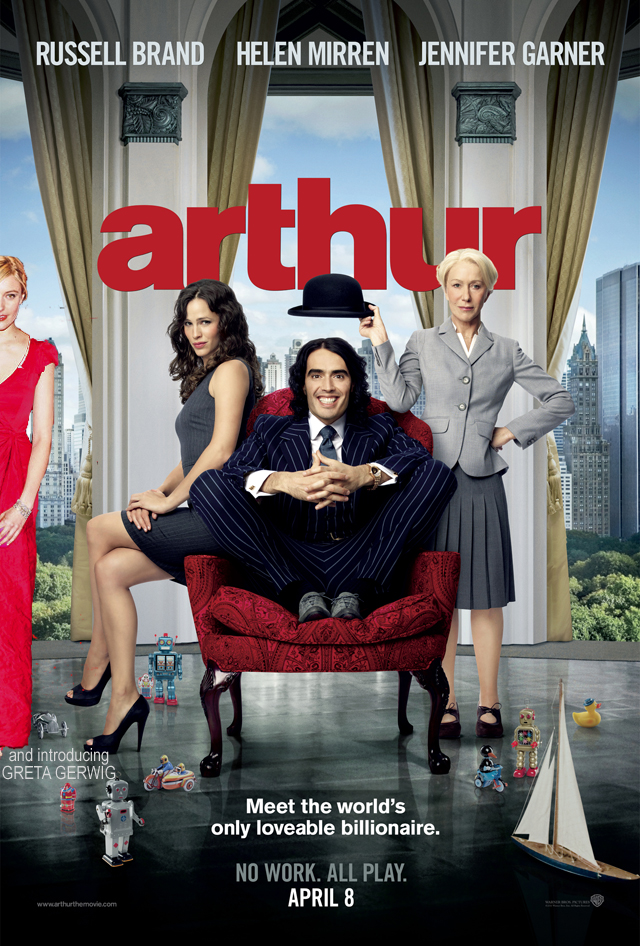The Hot Blog Archive for February, 2011
The Film Delivelution: 21611

FIlm Delivelution: The Evolution or Revolution, depending on your tastes, of Filmed Entertainment Delivery.
Today, I won’t spend much time on the WSJ piece by Martin Peers that speaks to many of the issues with Netflix that have been repeatedly outlined here. What he doesn’t speak to, and what I see as the single biggest problem with Netflix’s long-term position, is competition.
And just to note, I don’t see Hulu as “The Winner” either. I see a changing playing field, which because of increasingly simple technology is bigger than any existing company or tool.
There is also this brief snippet from Mark Cuban via The Daily Beast:
“What (people) are saying is that they are willing to save money by waiting to watch the same TV shows everyone else is watching. That isn’t anything new. That is the whole reason windows for content licensing exist. You can get any content for less just by waiting.
How long is it before the complaints of “I don’t watch 19,900 of Netflix’s shows and movies, why should I pay $8.95 per month? I only want to pay for what I watch!”
That brings us to…

Say “hello” to WB Digital Distribution’s new creation… the movie app.
$11.99 for Inception or The Dark Knight on your iPad/iPhone along with all the DVD extras, subtitles, etc. Stream it or download it all you like. (Here’s the press release)
I’m not saying that an app for every movie is The Future. But what I see in ideas like this one that the door is wide open for direct delivery from the content owner to the customer in just seconds (which obviously doesn’t include the time to cache a stream or download a whole movie).
Imagine the free WB Movie App that organizes and offers every film in the WB library. Imagine a free MPAA app that organizes and offers every title from every MPAA member library. Imagine being able to subscribe to this service for $40 a month to download any movie in the consortium after a 6 month theatrical release window to any of your platforms, including your TVs. Imagine another $40 a month for all of television.
Of course, there are dozens of variations out there. Want to pay nothing? Ad-supported television will still exist for that purpose, for that percentage of television watchers. Want a household platform that interacts with cable/internet/telephone, etc… that will certainly be an option.
But look at it from a studio standpoint. If the major studios gather and acquire 80 million buyers of All Studio Movie Content for $40 a month (about the wired television penetration in the US alone), that’s more than $38 billion a year to carve up between 6 companies. And revenue can be shared with very little conflict on the simple basis of popularity.
Ironically, the group of filmmakers likely to be most benefited by this notion are the indies… as the distribution issues of the past would be put in the past, and the loyal viewership of a committed group would be worth as much or more to a distributor in a subscription-based post-theatrical world than a film that has more widely marketable elements but is not well-liked enough to score multiple viewings… at least in my Utopian fantasy.
Here is a promotional video from WB about this new app-based platform:
Banksy’s Publicist Confirms His New Work In LA


Crayon Boy in Westwood (Urban Outfitters alley)

Charlie in West Hollywood
Variety An Early Leader In Maintaining Journalism Copyright?
Is Variety a stalking horse for the rest of Old Media in terms of enforcing copyright on original journalism?
Variety’s not saying. But they Cease & Desisted a small web site, Film News Briefs, which trades almost exclusively in Other People’s News.
According to FNB’s Founder/CEO Jessica Kantor, they had a standing informal deal with Variety, since the paywall went up. “They said it was okay as long as it is just a paragraph (4 lines) and always included a link back.”
Maybe it depends on how you define the word “line.” Maybe the trade simply decided to enforce its copyright. Or perhaps, Reed is trying this out for the industry?
As I wrote the other day, copyright battles might be a mess if material is already being distributed openly online for free. But what happens when you have a pall wall up and content that is not openly available is being transcribed/copied-&-pasted?
As another site that regularly “re-purposes” copyrighted content wrote, “The site and newsletter take up to four lines from Variety articles and provide direct links to Variety articles — pretty standard practice among aggregators.” But this practice, rationalized as being to the benefit of the originating site for years, is quickly heading to a litigious end. Simply, if you can’t maintain the value of your original content, you can’t afford to keep creating original content.
Ironically, the evolution of the FNB site, as reported by The Wrap, was that Kantor did a roundup of stories for her employers at The Weinstein Company. And that is completely legal and really, welcome by publishers, as the effort includes the company subscribing to the various media outlets. The point at which it becomes a copyright infringement – whether enforced or not – is when the private aggregator takes the content public and converts it into revenue for another media outlet, however small. FNB can’t be creating much revenue with its 4 ad boxes, so it seems like killing a fly with an elephant gun, but they are a for-profit business driven almost exclusively by OPC.
The maturity of The Internet is changing the notions of economic scale all over media. This is just one example. But after a decade of very limited enforcement efforts, content creators are realizing that they are now fighting for their lives. Lines are being drawn. Walls are going up. Some businesses – and Variety may be amongst them – will never recover what they’ve given up without much fight.
2 Comments »Hulu Pays For High Loyalty Content That Mainstream-Chasing Netflix Can’t Afford
This is another step in the direction things are heading… one I didn’t really expect.
The Criterion Collection, the dominant cineaste’s Home Entertainment label, is moving to Hulu after about 18 months streaming on Netflix. And they are moving the whole thing. Over 150 titles right now. And over 800 titles, once the last of what Netflix’s streaming rights expire.
Why?
Because Netflix is spending so much on its other content deals, now all quite expensive, that a mid-range deal like Criterion is too expensive and not highly prioritized enough to get done. That opened the door for Hulu.
But here is my take… in a few years, Criterion and the like will be all that is left to Netflix… and depending on how the business model evolves – remember, Hulu is owned by studios – perhaps to Hulu. Some business will have to be the streaming home of indie product. The numbers will not be nearly as big as for mainstream product. But it will be a viable business because, like Disney and kids, the loyalty to high-end product is enough to drive subscriptions. Not 30 million subscriptions. But maybe – pulling a number out of the air – 5 million… when combined with other product?
There will come a tipping point studios and library owners see the potential for more profit in making their product available directly and not through Netflix, which cannot afford to keep expanding their slice of the market or to pay the kind of rates it is now paying for a slice of the market. And keep in mind, only starts streaming after DVDs are released and sometimes 28 days after that.
And when that day comes, if Hulu remains aggressive or other players make serious entries into the business, Netflix will be left with either a very small slice of the market or be forced to sell itself – essentially, if not literally – to one or two studios to front what will essentially be an in-house post-theatrical streaming business. That’s when content like Criterion will be critical.
What a lot of people seem to forget about the internet is that it isn’t brand loyal. It’s true that there may not be a clear Sony brand, for example, that screams to people to buy a channel of only Sony product. But on the web, packaging is a matter of will, not real estate. Somewhere, there is a server that holds this studio’s movies (and TV shows) or that studio’s movies (and TV shows). You want all the studios? Here’s a price. You want 3 of the studios? Here’s a price. Just 1? Here’s a price. Set-up doesn’t require a proprietary wire going into your house. Access is not any more challenging than a strong wi-fi signal.
As long as Netflix feels to people like the cheapest, most complete way to access movies, they will have a massive subscriber base. But that reality is becoming less true and the illusion, as they spend more and more for content, is becoming harder to maintain. Losing Criterion is a big deal to people who love movie history. Netflix is one step closer to really streaming aging content from studios that is available on a somewhat inconsistent basis.
Some have painted me as a Netflix basher. But I’m not. I’m just a realist. The only way Netflix 3.0: The Streaming Era really works is with a lot more subscribers or a lot lot price for the content they are streaming. And if that price comes down, some studios will find that tipping point and stop making their product available to Netflix to stream. It’s not an attitude about Netflix. It’s just math.
There will be plenty of streaming. More than you ever imagined. And with better quality to more devices. But to stay alive in the market that they led experimentation into, they are going to have to have yet another great idea that keeps them from being cannibalized by their current content providers.
35 Comments »DP/30: The Black Swan/Rodarte Costume Trilogy
Here’s the story…
The Mullavey Sisters, who design under the name Rodarte, came aboard Black Swan to do some of the ballet costumes, particularly the white and the black swan and both Prince Siegfried and von Rothbart. As things heated up around the film, so did the question of who did what, between the Mullaveys and Costume Designer Amy Westcott.
So the first offering is The Mullaveys on the question of the controversy:
Next, a full DP/30 interview with The Mullavey Sisters, Laura and Kate:
And finally, a quick look at some of the costumes The Mullaveys created:
The (Almost) Official One-Sheet For Arthur

And On The iPad…
The question of the day is, “Is The Daily really delaying their subscription wall to Feb 28 only because of the release of a new iPad OS?
They have pitched me on the app, suggesting that they could take my subscription now, if I so wish.
Is the real problem that very, very few so wish?
As I have said before, $40 as an annual price point is not a number I resist. But what I would have signed up for sight unseen a couple of weeks ago, I will not be buying, having experienced The Daily for a couple of weeks. The talent they have assembled over there makes the output nearly tragic.
On Another Front…
WWD is reporting that Sports Illustrated will offer a $48 a year rate for online and print. Honestly, for $50, I would probably jump all over an online-only option for a magazine I read every week. (SI is not one, but not the point.) $48 to have it anytime/anyplace plus get the magazine is a winning price. And if the magazine can run on that, it may be a milestone.
I will NEVER pay $5 a week for an online version of any magazine. Occasional issues for occasional reasons? Maybe. But not every week. No iPad magazine launch was more important to me than The New Yorker. I would love to have every issue on my iPad. Don’t even need big bells and whistles. it’s a content buy. But $100 a year would be my high bar for buying an iPad subscription. I get the magazine delivered each week for much less than that. I’m willing to pay a premium for my amusement. But $5a pop? No way.
I got a tricked out promo to buy NY Times delivery at an alleged deep discount yesterday… More than $300 a year.
No.
Love the paper. $300 a year is a lot of money to read – when there’s time – news that’s already online. Rumors that the monthly Online Only rate being bandied about is $20 a month. Not going to work. I am a spender and it sounds like a lot to me. $10 a month… yeah… that’s more likely.
My suggestion to The Daily is to make itself a $20 app that lasts through the end of 2011. Forget about getting $100 a reader for that same period for now. And get better. The Wall Street Journal is the best news app… steal from inside the family. (It did occur to me that the trouble with The Daily having a scrolling contents bar on the right of the screen – as WSJ has for each section – is that there is not enough content to fill it.)
Whoopi & Her Oscar vs The New York Times
After questioning the “Hollywood Whiteout” story by A.O. Scott and Manohla Dargis yesterday, I figure I should say that I think Whoopi Goldberg – who I think is a great talent and a great truth teller – was way over the top in her “hurt feelings” over not being named in the article.
I think the piece was kind of a mess. It wasn’t really an Oscar piece, though now that I have seen the NYT print layout, the paper should be a little ashamed of itself. It was about all kinds of stuff regarding how Blacks are or are not fully represented in Hollywood. It was not a journalistic piece, though research was done. In spite of many very interesting ideas that were worth discussing, I kind of wish some editor had asked the esteemed duo to start again, from scratch, and to bury the non-lede.
Still, Whoopi wasn’t forgotten. She kind of got caught between moments of history. Hattie McDaniel was the first Black person to win an Oscar. It was for Supporting Actress. Halle Berry was the first Lead Actress winner. Sidney Poitier to Denzel. If we see it as an omission, Lou Gossett, who was the first Black to win Supporting Actor is far greater than Whoopi.
As I noted yesterday, what bothered me more than any personal omission, it was that 59 Black actors and actresses have been nominated since 1939. Not exactly equality. Even by population, it’s about half the amount of representation you would expect. But 34 nominations in the last 20 years? That’s pretty close to matching the percentage of Black people in America. These kinds of details were not in the article.
And really, 6 nominations in history for screenplay and 2 for director is a much bigger problem.
Anyway, I know that these two critics meant well. They were clearly serious about addressing a serious issue. In the context of what they wrote, they didn’t forget or disrespect Whoopi Goldberg. And watching The View, I felt like the ladies at the table hadn’t really read what was written. Geoffrey Rush, asked about the issue that had been created in the previous segment, offered smart perspective. He said that when Aussie papers sometimes talk Oscar, they talk Cate, Nicole, and Russell and forget him… even though he was the first natural born Aussie to win an Oscar. And that can hurt. And in a discussion of Oscar and race, not being mentioned hurt Whoopi’s feelings. But that wasn’t really the article they wrote. (It was, however, the art that the paper LOADED the page with.)
12 Comments »Berlinger Loses Outtakes Battle, Wins Latest In The War Of “Crude”
I’m pleased for Joe Berlinger, whose film Crude documented the lawsuit by extremely poor Ecuadorans against Chevron, which bought the company that bought the company that seems to have clearly contaminated a large swath of the Ecuadorean Amazon. Chevron’s behavior in the suit was mercenary, at best.
And now, a $8 billion award has been granted by an Ecuadorean court. Of course, Chevron is claiming that the ruling is unenforceable… because they have decided they did no wrong, so any finding against them must be corrupt. In fact, their press release is so over the top, it seems like it could be the work of The Yes Men… but it isn’t.
Chevron, which asked that the case be moved from the US to Ecuador 8 years ago, is now claiming that the Ecuadorean system has been corrupted and they are being victimized. Interesting, the $8 billion is less than a third of what was requested in the lawsuit. But Chevron has gotten an international tribunal to hang a shadow over any Ecuadorean award. So we’ll see what happens next.
In any case, in between these two moments in Berlinger’s life was a litigation to force him to give up most of his outtakes from the film, so that Chevron could go through them and see if anything was said that wasn’t included in the film that could help their case.
However scummy in principle, the finding that Berlinger had to turn over some outtakes had legal precedent and didn’t seem to be against the First Amendment in any way. And in a way, I think it’s great that it opened things up so that it was all on the table. No one from Chevron can make claims of any iffy behavior on Berlinger’s or the plaintiff’s part. It wasn’t a great ruling for documentarians and their subjects’ comfort level when discussing sensitive issues, but the law is the law.
The overall fight seems to be far from over. Today’s news is good, but the legal marathon (more than 15 years already) continues.
2 Comments »2 Stories About The Trend To Lazy In Journalism
I know that it bores some of you, but for me, this is The Story these days, when it comes to movies and when it comes to journalism. There are veteran movie journalists – as veteran or more veteran than I – who get angry and throw out the idea that I am “the self-appointed conscience of Hollywood media.” That I am not. What I am is someone who feels that we, as entertainment journalists, are on the bottom rung of journalism, but that even from there, we are a canary in the coal mine. If we are infected, the disease will slowly infect others. And it has.
The next rung up on the ladder is sports journalism. Here is a story from The Miami Herald’s columnist and ESPN commentator Dan Le Batard about Deadspin.com and how it is lowering standards in his business. And he is being mocked for the trouble. Even the tweeted headline from Romenesko, a voice of restraint, was “@romenesko: Le Batard’s upset with “new media” again, this time going after Deadspin for its Sanchez coverage.”
If you read the story, you will read what I believe to be 100% true about the trajectory of media. Like me, Le Batard is not screaming about The New and how it’s not like the good old days. He is mostly upset, it seems, about how Old Media is following the trend of sites like Deadspin.com, which are gossip mongers whoring for traffic, and where this leads for all of us.
If you read the comments, you will see many variations on, “We’re in charge of what’s news now! Ha ha. Signed, The Public.”
But with due respect to The Public, The Public is an ass. It’s all very good to scream, “You’re not the boss of me!” every time the media or anyone else prioritizes a story that bores you. But someone has to be around who can tell the difference between a revolution in Egypt and the death of Anna Nicole Smith, in terms of what a journalistic priority is. Not every story needs to be told. Finally, we face a real threat of turning our brains to mush… Popularity As The Standard.
Moreover, Le Batard is repeatedly taken to task for not outing an athlete, with whom he had become real life friends, for being gay… even though it would have been a big story to out an active NBA player. How dare he show journalistic restraint and not offer this man’s personal life up for Twitter inspection!
This notion that judgment is now a bad thing… that the job of a journalist in 2011 is to throw everything we come across into the public forum for The Public to dissect and slot the value of based on the expansive inexpertise of the collective conscious.
Of course, it’s even worse than that, as The Public’s willful participation in being deceived by their own sense of control is part and parcel of the New Age Of Social Media. But that’s a story for another day.
Le Batard also considers an idea that I don’t think about enough. The 17-year-old who is being dragged through the muck of being associated with Mark Sanchez… getting past the “she never asked to be a public figure” part… it strikes me that we won’t remember her in a month or two… at all. And even if she isn’t driven to self-destruction, the media has reeked havoc on her young life and she will be left alone, out of the spotlight, to try to put it back together over the next period of time, which depending on her support system could be weeks, months, years, or a lifetime. Like TV vampires, we have drained her for our own amusement, not even for sustenance. And on we move to the next victim who we rationalize as “asking for it.”
The second story I ran into that I found fascinating was a response to an Atlantic article about porn. The response came from porn producer, Tony Comstock. And basically, what Comstock does is to fact check the story that ran.
In years past, I would have probably seen the Comstock response as a defensive, sleazy attempt to cover for a sleazy industry. What I see now is a guy who knows more about a subject than the author of a story published in a serious publication, as well as more than her editor(s), and clearly, her copy editors.
And in the end, the story that he is complaining about, is not particularly anti-poronography. For instance, on the last page (or 4 web pages) Natasha Vargas-Cooper writes, “I have yet to see a single credible study that links proliferation of pornography to an increase in abuse of women. More important, the sort of sex that Dines envisions—where respect, love, and civic connections are merged into erotically rewarding experience—is utopian (and not perhaps all that enticing). Dines ignores the fact that men behave differently than women.”
Also, “Equality in sex can’t be achieved. Internet porn exposes that reality; it may even intensify that reality; it doesn’t create it.”
So it’s not a black + white argument this writer is making. However, Comstock is still right to point out that she has some of her facts dead wrong, particularly in spouting out stats that don’t actually exist in the context in which she offers them and have become accepted as real because they have repeated enough times on the internet.
Would the actual facts have changed the author’s overall idea? No way of knowing. But it is amazing how the details can play out for readers. Caution is required. And these days, careful writing and editing are more and more often lost to the bigger idea and a slightly stronger kick in making an argument.
I was accused of this just yesterday as I wrote, in passing, that the majority of blaxploitation films had been directed by “old Jewish men.” I was then attacked by someone with an interest in genealogy. Though she didn’t seem to have a problem with the idea that most of these men were white, she objected to the idea of me claiming that a majority was Jewish. And I was caught putting an inaccurate cherry on top of a sundae that didn’t need one. I would argue that it missed the point, but I couldn’t argue that I published something that was inaccurate in a detail.
Of course, when I argue that a story is misleading because the sourcing that dominates the story is intentionally obfuscated to create a false sense of legitimacy where there is little, I am often shouted down. Are we becoming a culture that obsesses on the trees and disregards the forest?
What I think is important about these two stories, forest over trees, is that these are arguments I have been having with readers and others for years about entertainment media. It’s hard to change the direction of the ship, so few want to talk about it. But it keeps spreading, in large and small ways. And at the very least, we must all be as conscious of the facts and of the disinformation as we can. It may seem like hyperbole, but our lives may depend on it. Long Live The Twitter Revolution in Egypt… but God forbid that the power be used with just a few twists of fact into fiction to bring down a leader with lies.
But then again, Fox News is already on Twitter, right?
3 Comments »OSCAR: Animated Shorts
The five films competing for Best Animated Short – which you can now see in markets all over the country c/o Shorts International – are quite remarkable this year.
For my personal tastes, creating a hierarchy wasn’t hard. But the four films really speak to five different kind of animation sensibilities.
I was blown away by Day & Night the first time I saw it, on screen, before Toy Story 3. I have liked all the Pixar shorts. They are really worth buying on DVD/Blu. But this one was one of my favorites ever. Teddy Newton & Co simply came up with a concept that, for me, was singular. I’m not sure I could even explain it here if I needed to… but I don’t need to… you should see it. I love the music (GIacchino, of course). I love the ideas. And the execution is like watching a magic trick you have seen 1000 times, but still can’t quite figure out… and don’t want to. A masterpiece.
I will watch The Gruffalo with my son, in a few years, over and over and over again. It’s a great piece of filmmaking, highly stylized, with a challenging story, and god stuff for both adults and kids. It’s a bit like Bill Goldman’s The Princess Bride, though it never leans quite as far to the adult side.
Let’s Pollute is basic satire with style. It’s a spin on classic public service messages, just with the exact opposite message you would expect. And just when you think you’ve got the gag and it’s getting repetitive, it finds a new spin on the idea. Excellent stuff.
Madagascar, A Journey Diary mixes a variety of animation styles, endlessly jumping from style to style as it offers a Madagascan adventure. Very, very beautiful, eye-catching, with great music, and what feels very organic.
Last but not least, The Lost Thing is a sophisticated children’s book come to life. It feels like the experience of a book that sinks in more deeply as you read it over and over again with your child. There is a lesson, but it’s a subtle as every other element of the film.
4 Comments »BAFTA Not Baffling
The only surprise that could come out of BAFTA is that they may be closer to the Oscar voting than any other group else this year.
It pays to go last.
Six BAFTAs with comparable Oscar categories to The King’s Speech.
Three each for The Social Network and Inception.
Portman. Deakins. Toy Story 3.
All makes sense.
Any questions?
7 Comments »











